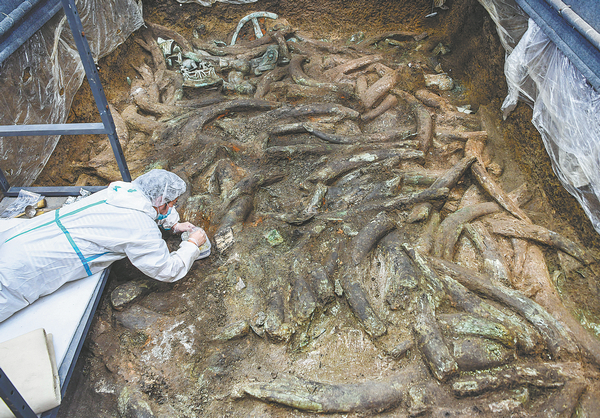

"Our key progress over the past century also expands to some frontier areas of our country, like Northeast China and the Tibet autonomous region," Huo says. "Development of these studies reflect a grand picture of how a shared community of Chinese ethnic groups formed and blossomed.
"In these areas, we can more easily communicate with international scholars," Huo says.
In ancient China, history was a fundamental subject in academic studies, and that tradition also influences the growth of Chinese archaeology.
"On one hand, archaeology helps piece together our prehistoric origins, which was absent from ancient documents," says Chen Xingcai, director of the Institute of Archaeology at the Chinese Academy of Social Sciences. "On the other hand, it also greatly enriches our knowledge of those historical recordings."
Nevertheless, in modern times, archaeology concerns many more subjects beyond history.
"Only when barriers between different subjects are broken down and interdisciplinary studies are upheld in archaeology, can its value be better displayed," Chen says.
Consequently, one volume of the book specifically reviews the adoption of new technology and approaches from various natural sciences in archaeology.
This year has witnessed the wide influence of archaeology on the public, following a livestreamed broadcast of the Sanxingdui site in Sichuan province and acclaimed TV shows highlighting the discipline.
Given the trend, Wang, the chief editor, expects the work to feed demand among not only professionals, but also general readers.
"Unveiling our achievements in studying the past, the book could be a bridge that connects researchers to members of the public who are interested in archaeology," he says.
Contact the writer at wangkaihao@chinadaily.com.cn